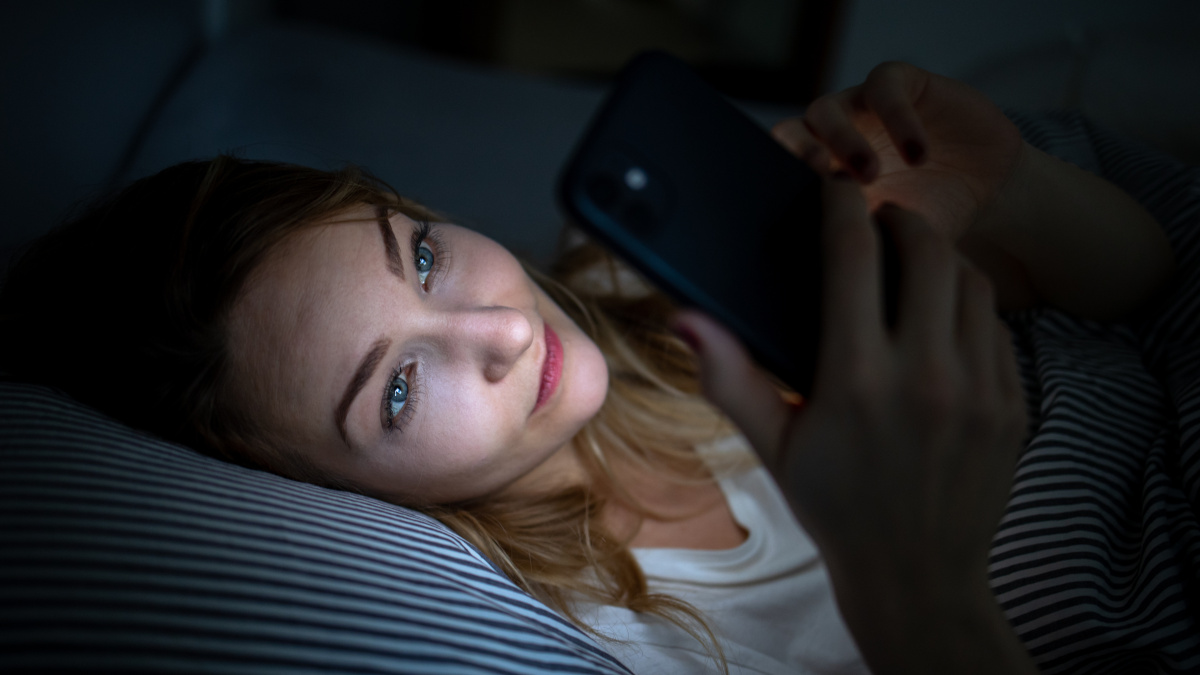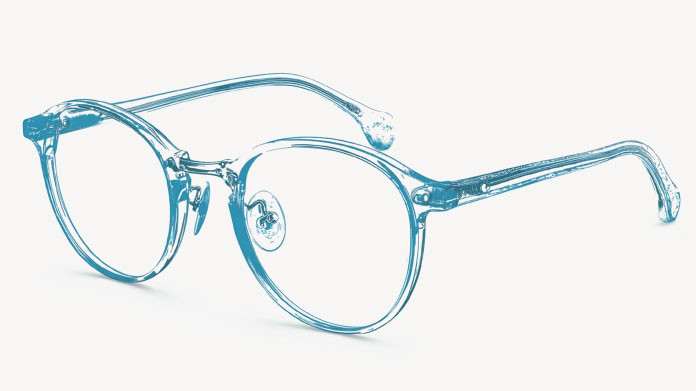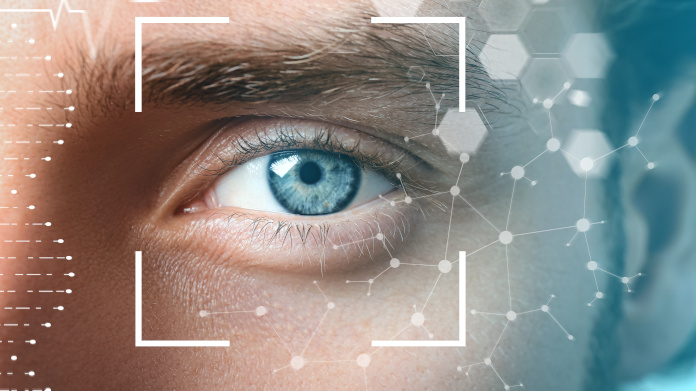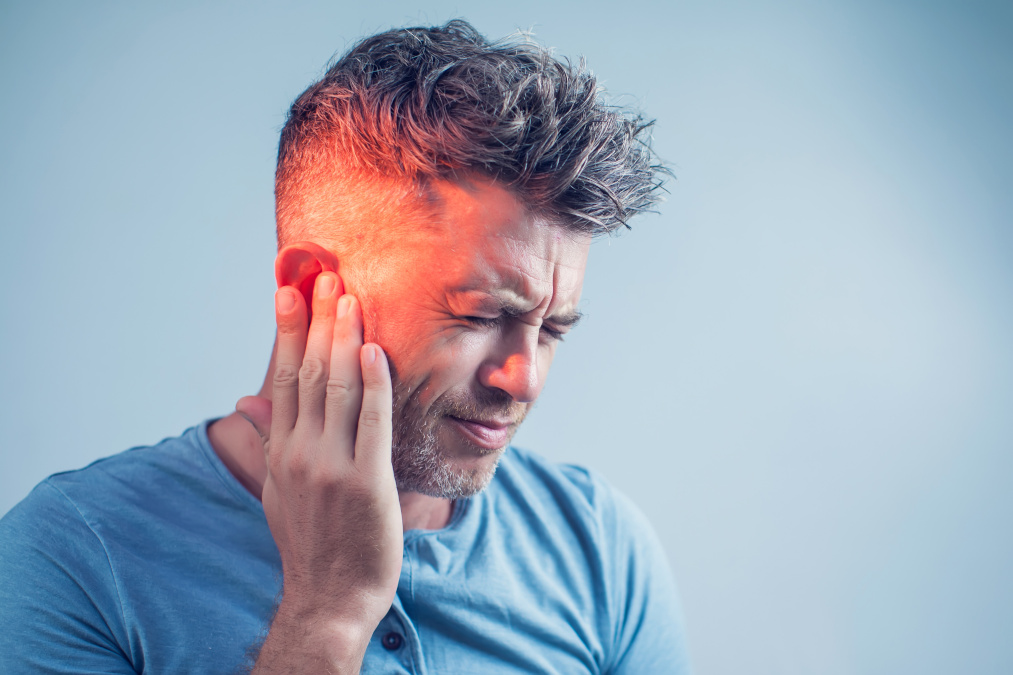How can you protect your eyes from blue light?
Eyestrain, mood disturbance, sleep problems … Discover how blue light affects your health and how these 5 natural products can help.

Recap: what exactly is blue light?
The human eye is able to perceive light waves responding to a narrow frequency band, also known as wavelengths. Blue light is situated at one extreme of the visible light spectrum, very close to UV rays, and as such, presents a health risk when exposure is prolonged.
Such exposure will eventually lead to eye fatigue (causing dry eyes and irritation), mood disturbance, reduced production of melatonin and thus sleep problems...
Natural sunlight also contains blue rays, but LED lightbulbs and screens emit more blue light than that produced by the sun. With new technology advancing exponentially, our exposure to this kind of artificial light, through smartphones, tablets, televisions and other electronic devices, can only increase.
Combatting the effects of blue light: some general advice
The best way of minimising the effects of blue light on your health is to limit your screen time. If you have no choice but to spend significant periods in front of a screen or on a smartphone, make sure you take regular breaks – ideally, 10 minutes every 2 hours.
Take care too to adjust your screen brightness correctly in relation to where it is and the time of day. The aim is to reproduce as closely as possible the normal cyclical variations of natural light. You should also leave enough distance between your eyes and the screen (at least an armlength). In the evening, you can usually put your smartphone on ‘night shift’ mode. Anti-blue light glasses are also available.
With regard to lighting, it’s best to choose warm tones instead of bulbs that give off cold, white light.
To minimise sleep issues, we recommend stopping all exposure to screens half an hour to an hour before bedtime.
5 natural products to help fight the effects of blue light
If you’re keen to find natural ways of reducing your risk from blue light exposure, you’ll be pleased to know that certain substances offer particular benefits in this respect:
Bilberries
Wild bilberry is a slightly sweet and tangy fruit which is rich in anthocyanins, the pigments that give certain fruit and flowers their colour. Among the anthocyanins in bilberry, researchers have identified cyanidin and delphinidin as enabling the regeneration of rhodopsin, or visual purple. Bilberry thus supports visual function in cases of prolonged screen exposure. You can incorporate bilberries into your diet or alternatively, take a bilberry supplement, either on its own, or combined with other active ingredients with similar properties.
Omega-3
Docosahexaenoic acid (DHA), an omega-3 fatty acid, promotes regeneration of an eye pigmentprotective role, eliminating impurities from the retina. DHA is thus a key element in the eye’s composition: it helps to maintain normal vision. To ensure adequate levels, choose foods rich in essential fatty acids, such as oily fish and certain vegetable oils, or supplement regularly with DHA.
Vitamin A
Present in numerous colourful foods such as spinach, carrots and orange-coloured fruit, vitamin A is good for vision and helps to counter the effects of blue light. To increase your daily intake, eat more vitamin A-rich foods, or take a supplement with a high content of retinol, an excellent form of vitamin A (such as the formulation Optivision, which also contains bilberry extract, glutathione, lutein and astaxanthin, etc.)
Melatonin
Melatonin is a hormone naturally secreted by the body, known for promoting drowsiness. It regulates our sleep-wake cycle but can only be produced in low-light conditions. To help counter the negative effects of blue light on melatonin production, you can take a supplement such as Melatonin or Melatonin Spray to help you sleep better.
Valerian
Another substance that helps combat the sleep problems associated with blue light exposure is valerian . This plant has been used in Europe since ancient times to improve sleep quality. It is a common ingredient in phytotherapy products formulated to relieve insomnia, especially stress-related insomnia. As well as improving sleep, valerian helps to reduce anxiety and support good mental health. You’ll find it in the formulationNatural Sleep Formula, along with other active ingredients with complementary properties (hop, Californian poppy, rhodiola...) Its ‘sister’ product,Advanced Sleep Formula similarly contains a number of natural extracts, combined in this case, with melatonin.
References
- Chu W, Cheung SCM, Lau RAW, et al. Bilberry (Vaccinium myrtillus L.) In: Benzie IFF, Wachtel-Galor S, editors. Herbal Medicine: Biomolecular and Clinical Aspects. 2nd edition. Boca Raton (FL) : CRC Press/Taylor & Francis ; 2011
- Gilbert C. What is vitamin A and why do we need it?. Community Eye Health. 2013;26(84):65.
- Hodge W, Barnes D, Schachter HM, et al. Effects of Omega-3 Fatty Acids on Eye Health: Summary. 2005 Jul. In: AHRQ Evidence Report Summaries. Rockville (MD): Agency for Healthcare Research and Quality (US); 1998-2005. 117.
- Sedative and sleep-enhancing properties of linarin, a flavonoid-isolated from Valeriana officinalis - Sebastián Fernández Cristina Wazowski Alejandro C Paladini Mariel Marder
- Instituto de Quı́mica y Fisicoquı́mica Biológicas, Facultad de Farmacia y Bioquı́mica, Junı́n 956 (1113), Buenos Aires, Argentina
- Meta-Analysis: Melatonin for the Treatment of Primary Sleep Disorders - Eduardo Ferracioli-Oda, Ahmad Qawasmi, Michael H. Bloch. Published: May 17, 2013 https://doi.org/10.1371/journal.pone.0063773
Keywords
10 Hours
Trustworthy company with tested products
Trustworthy company with tested products
Trusted
4 Days
Efficiency and speed
Efficiency and speed
Cuccie
6 Days
GOOD BRAND IN FOOD COMPLEMENTS
GOOD BRAND IN FOOD COMPLEMENTS - SERIOUS WITH GOOD DOCUMENTS AND DETAILS SCIENTIST. AND SERIOUS HONNEST COMMERZIALISATION. I HAVE TRUST IN THEIR PRODUCTS.
FENOGLIO Guy
7 Days
Very good experience
Very good experience, the products arrived in time, in perfect condition and are good quality. Thank you.
GABI TIRCOCI
13 Days
very good expereince
very good expereince
Jelena Đaković
13 Days
Very good products.
Very good products.
Agnes BENDSAK
15 Days
Just OK
Just OK, ordering from company for many years and being safisfied
Lynn Mae
16 Days
Recomendo
Produtos encomendados são recebidos atempadamente e de acordo com o anunciado! Muito satisfeita!
Carla Sofia
16 Days
Everything is great!
Everything is great!
Jonas
21 Days
The delivery was fast and the product…
The delivery was fast and the product is great
SOMMARIVA Gianni
22 Days
Great service and lots of information
Great service and lots of information
Gabi
25 Days
Service Satisfaction
I’m satisfied with the service; it fulfilled what it set out to do.
Anfhony Abreu
28 Days
Original product and fast delivery
Original product and fast delivery. I haven't started it yet, but will do soon.
Vincenza Catania
31 Days
Good quality
Good quality. Good service.
Leonel Guzman
33 Days
Top!!!!!!!!
Top!!!!!!!!
Michael
of experience
your money back
##montant## purchase




